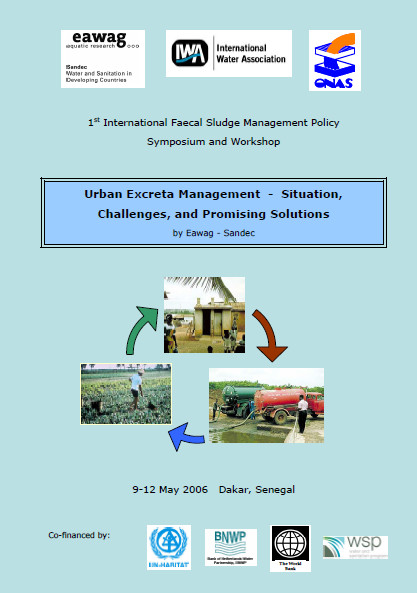Urban Excreta Management - Situation, Challenges, and Promising Solutions
 |
1st International Faecal Sludge Management Policy Symposium and Workshop - 9-12 May 2006 Dakar, Senegal
rapport May 2006 ; 15 pages
Aut. Halidou Koanda & Doulaye Koné & Michael Steiner &
Ed. EAWAG - Dubendorf IWA - London ONAS - Dakar
Téléchargeable sous format: PdF
Téléchargeable chez l'éditeur
Abstract:
In sub-Saharan Africa, more than 80 % of houses in large cities and up to 100 % in towns are served by on-site sanitation facilities (Strauss et al. 2000). Because of water scarcity and intermittent water supply services, and for financial-economic reasons, area-wide, sewered sanitation is not suitable in most urban settlements. Small-bore or low-cost satellite sewer systems might, prove feasible in some selected urban areas. It is unlikely, though, that sewerage will be the predominant sanitation option-of-choice in developing countries in the foreseeable future. On-site sanitation installations will serve the growing urban populations in developing countries for decades to come. As a consequence, growing quantities of faecal sludge will have to be managed. This document analyses the main problems identified along the “FS management path” (collection, haulage, treatment, and reuse or disposal) which prevent effective excreta management. It proposes institutional, regulatory, economic, financial and technical measures enabling the improved management of faecal sludges.
Editeurs/Diffuseurs: |
|
EAWAG
-
Institut Fédéral Suisse des Sciences et Technologies de l’Eau - Dubendorf - Suisse |
IWA
-
International Water Association - London - Royaume Uni |
ONAS
-
Office national de l'assainissement du Sénégal - Dakar - Sénégal |
En cas de lien brisé, nous le mentionner à communication@pseau.org